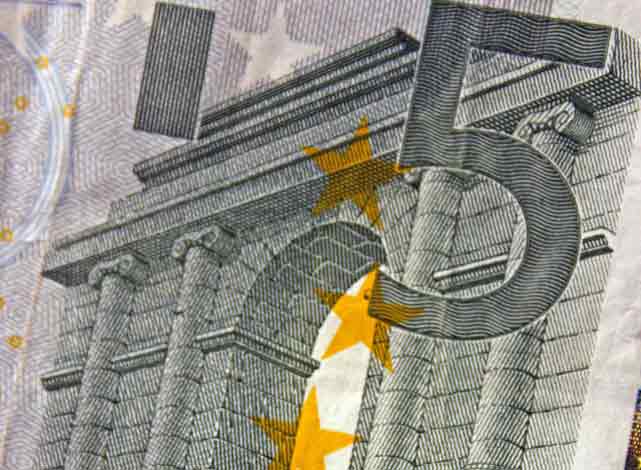Pound-to-Euro Rises as UK Jobs Report Lifts BoE Outlook
- Written by
David Woodsmith

The Pound Euro (GBP/EUR) exchange rate rallied on Tuesday as markets reacted to the UK’s latest labour market report.
At the time of writing, GBP/EUR was trading at €1.1596, up 0.3% on the day.
The Pound (GBP) climbed on Thursday after upbeat UK employment figures saw investors rein in bets on more Bank of England (BoE) interest rate cuts, giving Sterling a lift.
The latest British jobs report indicated that both unemployment and wage growth held steady in the three months to June, suggesting that the recent slowdown in the labour market may be easing.
Employment growth was particularly striking, with the number of people in work jumping by 238,000 over the period. This not only outpaced the 134,000 gain seen previously but also came in well above forecasts for a modest 65,000 rise.
July’s figures added to the upbeat tone. HMRC payroll data revealed a fall of just 8,000 positions – far better than the predicted 60,000 drop – while jobless claims fell by 6,200, defying expectations for an increase of 19,700.
Markets welcomed the stronger-than-expected readings, with traders betting that a resilient jobs market could prompt BoE policymakers to take a more measured approach to future interest rate cuts.
The Euro (EUR) lost ground after fresh German data revealed a sharper-than-anticipated slump in investor confidence.
August’s ZEW economic sentiment index slid from 52.7 to 34.7, coming in well below forecasts of 40. This was the first downturn since April, signalling renewed caution among investors as worries over potential US tariffs combine with persistent signs of weakness in the Eurozone’s largest economy.
The disappointing figures reinforced concerns that Germany’s recovery momentum may be faltering, putting pressure on the single currency.
Looking forward, GBP/EUR could be relatively muted on Wednesday amid a lack of high-impact UK and Eurozone economic data.
For EUR investors, attention will be on Germany’s final inflation figures for July alongside wholesale price data. Unless the inflation reading deviates from the initial estimate, the impact on EUR is likely to be minimal. However, wholesale prices are projected to have risen last month, which could provide the single currency with a slight boost.
For Sterling, traders may opt to stay cautious ahead of Thursday’s second-quarter GDP results. Growth is expected to have slowed sharply – from 0.7% in Q1 to just 0.1% in Q2 – a figure that could spark a sell-off in the Pound if confirmed.
STORY LINK Pound-to-Euro Rises as UK Jobs Report Lifts BoE Outlook

Pound Sterling Climbs Against Euro as UK Jobs Data Dents BoE Rate Cut Bets
The Pound Euro (GBP/EUR) exchange rate rallied on Tuesday as markets reacted to the UK’s latest labour market report.
At the time of writing, GBP/EUR was trading at €1.1596, up 0.3% on the day.
The Pound (GBP) climbed on Thursday after upbeat UK employment figures saw investors rein in bets on more Bank of England (BoE) interest rate cuts, giving Sterling a lift.
The latest British jobs report indicated that both unemployment and wage growth held steady in the three months to June, suggesting that the recent slowdown in the labour market may be easing.
Employment growth was particularly striking, with the number of people in work jumping by 238,000 over the period. This not only outpaced the 134,000 gain seen previously but also came in well above forecasts for a modest 65,000 rise.
July’s figures added to the upbeat tone. HMRC payroll data revealed a fall of just 8,000 positions – far better than the predicted 60,000 drop – while jobless claims fell by 6,200, defying expectations for an increase of 19,700.
Save on Your GBP/EUR Transfer
Get better rates and lower fees on your next international money transfer. Compare TorFX with top UK banks in seconds and see how much you could save.
The Euro (EUR) lost ground after fresh German data revealed a sharper-than-anticipated slump in investor confidence.
August’s ZEW economic sentiment index slid from 52.7 to 34.7, coming in well below forecasts of 40. This was the first downturn since April, signalling renewed caution among investors as worries over potential US tariffs combine with persistent signs of weakness in the Eurozone’s largest economy.
The disappointing figures reinforced concerns that Germany’s recovery momentum may be faltering, putting pressure on the single currency.
Looking forward, GBP/EUR could be relatively muted on Wednesday amid a lack of high-impact UK and Eurozone economic data.
For EUR investors, attention will be on Germany’s final inflation figures for July alongside wholesale price data. Unless the inflation reading deviates from the initial estimate, the impact on EUR is likely to be minimal. However, wholesale prices are projected to have risen last month, which could provide the single currency with a slight boost.
For Sterling, traders may opt to stay cautious ahead of Thursday’s second-quarter GDP results. Growth is expected to have slowed sharply – from 0.7% in Q1 to just 0.1% in Q2 – a figure that could spark a sell-off in the Pound if confirmed.
International Money Transfer? Ask our resident FX expert a money transfer question or try John's new, free, no-obligation personal service! ,where he helps every step of the way, ensuring you get the best exchange rates on your currency requirements.
TAGS: Pound Euro Forecasts
Comments are currrently disabled
Related Stories:
- Pound to Euro Pressured by Westminster Uncertainty - December 8, 2025
- British Pound to Euro Forecast: GBP/EUR Holds 5-Week Rally but Outlook Divided - December 8, 2025
- Pound-to-Euro Forecast: GBP/EUR Jumps to 5-Week Best as Bears Back Off - December 5, 2025
- Pound-to-Euro Dips as EUR Finds Support and Dollar Softens - December 4, 2025
- British Pound to Euro Forecast: GBP Lifted, but EUR Strength to Limit Upside - December 4, 2025
- Pound-to-Euro Rises as Services PMI Eases Growth Fears - December 3, 2025
- Pound-to-Euro Forecast: GBP/EUR Dips on Rising Yields, BoE Caution - December 3, 2025
- Pound to Euro Dips on Eurozone Inflation Surprise - December 2, 2025
- British Pound to Euro Forecast: GBP/EUR Below 1.14 After Budget Bounce - December 2, 2025
Latest News:
- GBP to USD Forecast: Pound Sterling Drifts on Leadership Uncertainty, Fed Watch - December 8, 2025
- Pound to Euro Pressured by Westminster Uncertainty - December 8, 2025
- Euro to Dollar Forecast: EUR/USD to Break Above 1.17 on FED Rate Cut? - December 8, 2025
- Pound-to-Dollar Forecast: Will GBP/USD Rally on FED This Week? - December 8, 2025
- British Pound to Euro Forecast: GBP/EUR Holds 5-Week Rally but Outlook Divided - December 8, 2025
- British Pound to Dollar Forecast: GBP/USD Supported as Budget Fear Fades - December 5, 2025
- Pound-to-Euro Forecast: GBP/EUR Jumps to 5-Week Best as Bears Back Off - December 5, 2025
- GBP to USD Forecast: Pound Sterling Extends Gains Ahead of Key US Sentiment Data - December 4, 2025
- Pound-to-Euro Dips as EUR Finds Support and Dollar Softens - December 4, 2025
- Pound-to-Dollar Forecast: GBP/USD Jumps to 5-Week Best - December 4, 2025









